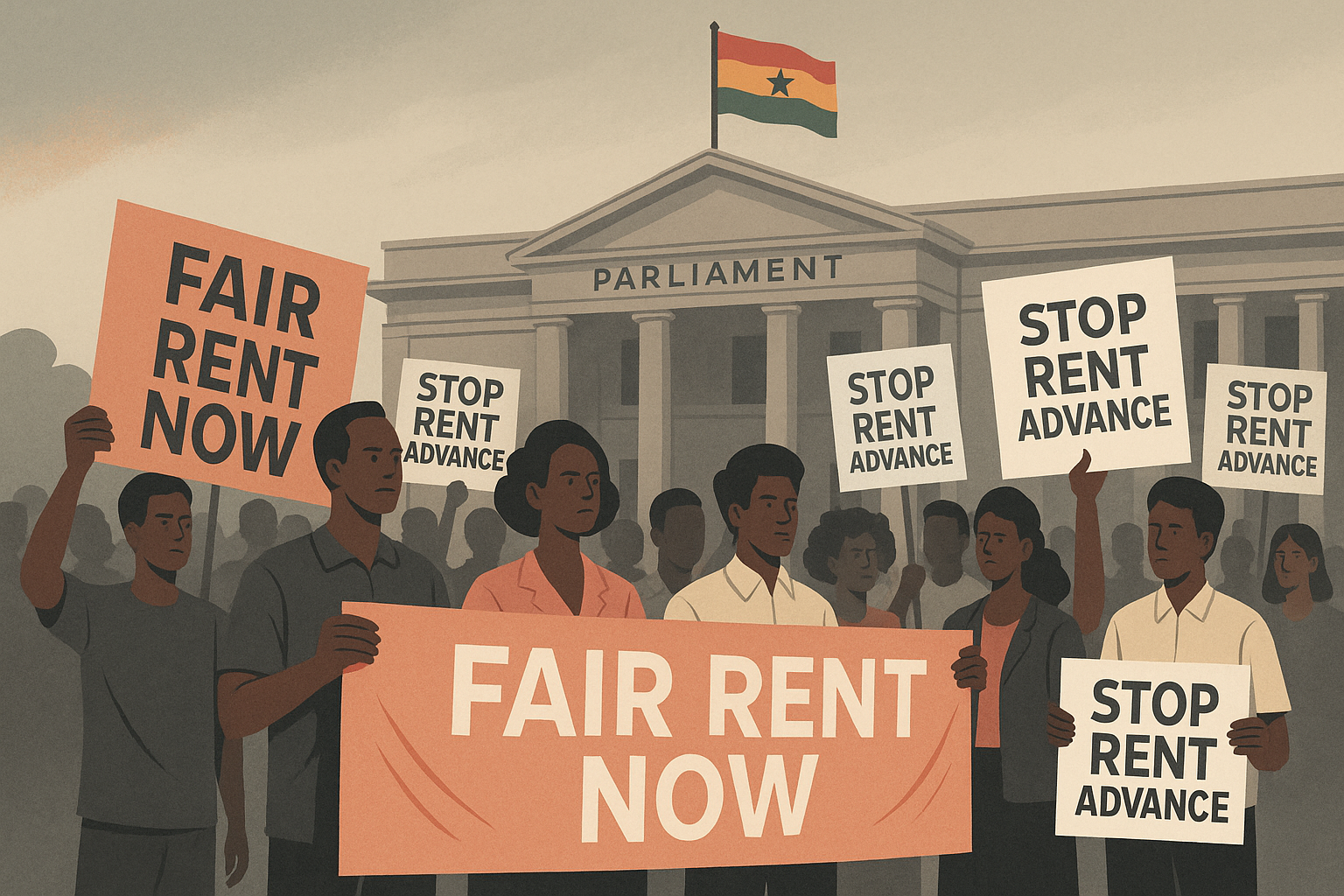500,000 Tenants to Protest Ghana’s High Rent Crisis
“Without innovative models that combine new supply with fair rent structures, tensions will continue to rise.”

LandLedger Insight Team
Published on 8 September 2025
Accra, September 5, 2025 —
The National Tenants Union of Ghana (NATUG) has announced plans to mobilise as many as 500,000 tenants to protest against the rising cost of rent, targeting both the Presidency and Parliament in Accra.
According to the union, the planned demonstration reflects growing frustration with Ghana’s rental market, where advance rent payments of one to two years remain common practice despite calls for reform. NATUG argues that many households are being pushed into financial distress by landlords demanding lump-sum payments far beyond average income levels.
This unprecedented mobilisation highlights a deepening housing crisis. While Ghana’s housing deficit is estimated at over 2 million units, limited supply and weak regulation have left tenants with little bargaining power. NATUG has repeatedly urged lawmakers to prioritise a new Rent Control Bill and other housing reforms, but progress in Parliament has been slow.
If realised, the scale of the protest would mark one of the largest tenant-led actions in Ghana’s history, placing pressure on policymakers to address affordability and enforcement gaps in the rental sector.
Why It Matters
This mobilisation is more than a tenant protest — it is a warning signal to Ghana’s entire housing ecosystem. It shows how far the affordability crisis has pushed ordinary households, and how urgent structural solutions have become.
For investors, developers, and policymakers, the protest underlines that housing reform can no longer be delayed. Without innovative models that combine new supply with fair rent structures, tensions will continue to rise.
One such approach is Build, Operate, Tokenise (BOT) eco-friendly social housing, where municipal authorities manage housing stock to ensure fair rents, while financing comes from fractionalised investment. This model aligns tenant protection with sustainable design and private capital mobilisation.
👉 Read our related piece: Eco-Friendly Social Housing: A BOT Model for Ghana’s Future
By pairing public oversight with transparent investment mechanisms, BOT models offer a pathway out of the cycle of unaffordable advance payments — exactly the kind of innovation NATUG’s protest is calling attention to.
Sources
Get Market Insights
Subscribe to our newsletter for the latest trends, opportunities, and expert analysis.